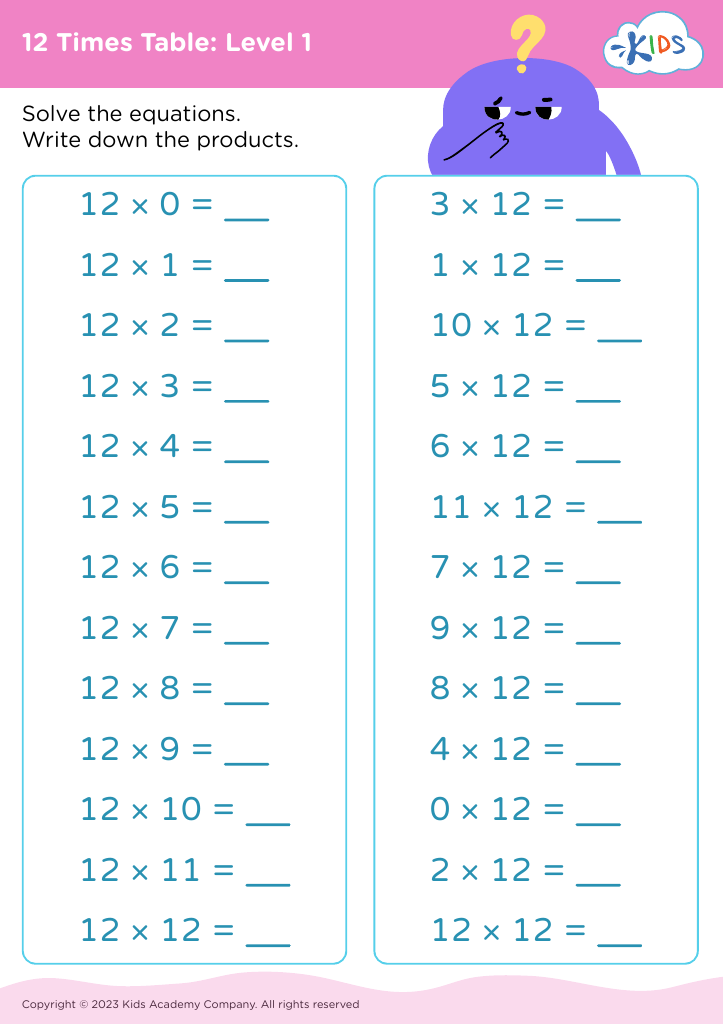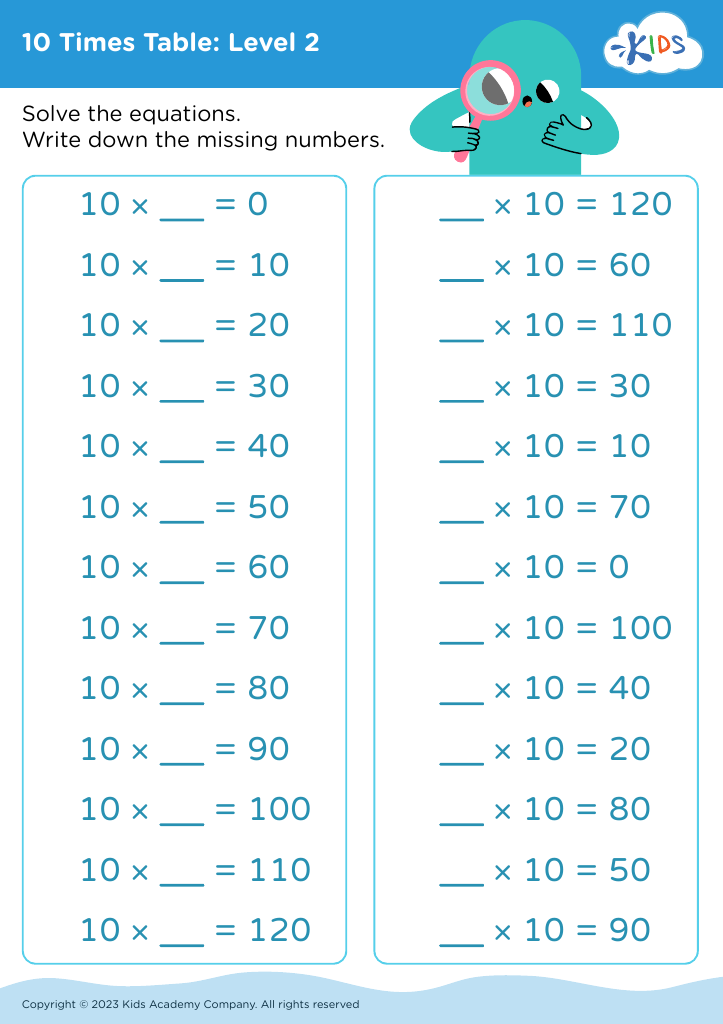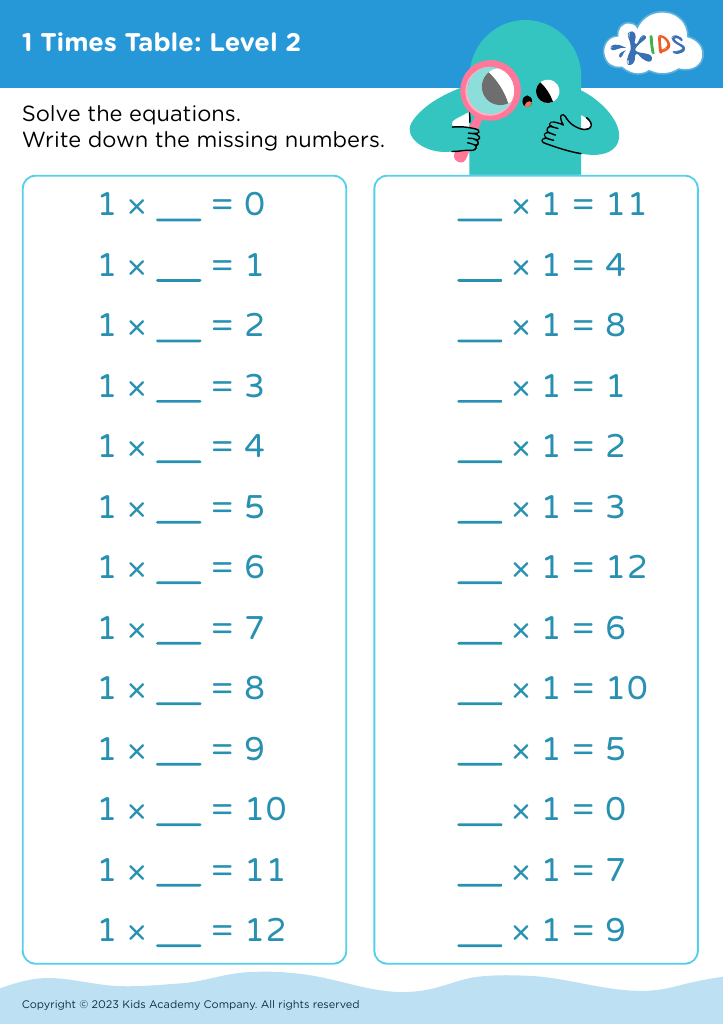Enhancing math skills Times Tables Worksheets for Ages 3-8
3 filtered results
-
From - To
Enhancing math skills is crucial for young learners, and our Times Tables Worksheets for ages 3-8 offer a fun and engaging way to master multiplication. Designed to nurture early math abilities, these printable worksheets provide a variety of exercises tailored to different skill levels. From visually appealing activities to interactive challenges, children can strengthen their understanding of times tables while developing confidence in math. Incorporating these worksheets into daily practice will help little ones build a solid foundation for more advanced concepts. Explore our resources and watch your child flourish in their mathematical journey!
Enhancing math skills, particularly times tables, for children aged 3-8 is crucial for several reasons. First, early introduction to multiplication concepts sets a solid foundation for future mathematical learning. As children become familiar with numbers and patterns, they develop confidence in their abilities, which encourages a positive attitude towards math as they advance in school.
Understanding times tables fosters critical thinking and problem-solving skills. Encouraging frequent practice can develop memory retention and improve cognitive functions, helping children to see connections within mathematical concepts. This early skill-building also alleviates anxiety regarding complex math topics later on, making learning mathematics less intimidating.
Moreover, mastery of multiplication plays an essential role in daily life—whether it's dividing a pizza among friends or calculating change at a store. By emphasizing this skill during early childhood, parents and teachers empower students to navigate real-world scenarios effectively.
Lastly, engaging children in times tables can be a bonding experience when done collaboratively through games and fun activities, enhancing parental involvement in education. Overall, prioritizing math literacy at this stage not only equips children with necessary social skills but also prepares them for a lifetime of math proficiency.





















